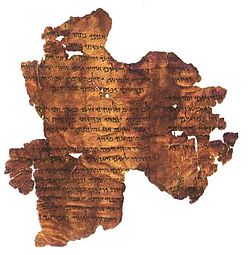
Micah 7 is the seventh chapter of the Book of Micah in the Hebrew Bible or the Old Testament of the Christian Bible. This book contains the prophecies attributed to the prophet Micah, and is a part of the Book of the Twelve Minor Prophets.

Micah 1 is the first chapter of the Book of Micah in the Hebrew Bible or the Old Testament of the Christian Bible. This book contains the prophecies attributed to the prophet Micah, and is a part of the Book of the Twelve Minor Prophets.

Micah 2 is the second chapter of the Book of Micah in the Hebrew Bible or the Old Testament of the Christian Bible. This book contains the prophecies attributed to the prophet Micah, and is a part of the Book of the Twelve Minor Prophets.

Micah 3 is the third chapter of the Book of Micah in the Hebrew Bible or the Old Testament of the Christian Bible. This book contains the prophecies attributed to the prophet Micah, and is a part of the Book of the Twelve Minor Prophets.
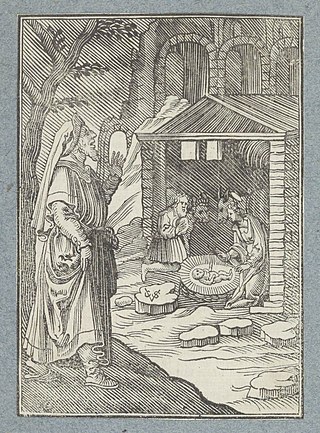
Micah 5 is the fifth chapter of the Book of Micah in the Hebrew Bible or the Old Testament of the Christian Bible. This book ostensibly contains the prophecies attributed to the prophet Micah, and is a part of the Book of the Twelve Minor Prophets.
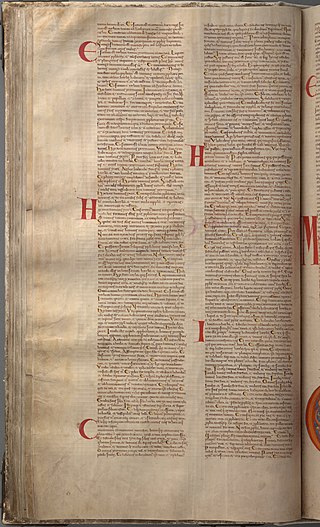
Zechariah 10 is the tenth of the total 14 chapters in the Book of Zechariah in the Hebrew Bible or the Old Testament of the Christian Bible. This book contains the prophecies attributed to the prophet Zechariah, and is a part of the Book of the Twelve Minor Prophets. This chapter is a part of a section consisting of Zechariah 9–14.
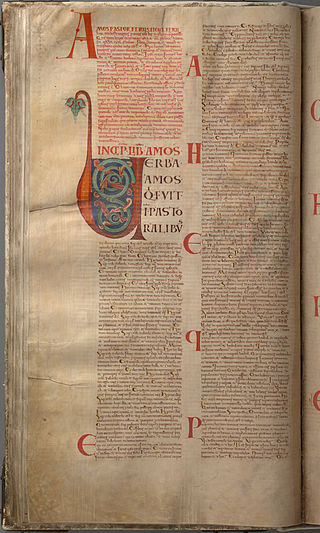
Amos 3 is the third chapter of the Book of Amos in the Hebrew Bible or the Old Testament of the Christian Bible. This book contains the prophecies attributed to the prophet Amos, especially God's extraordinary love, being repaid by Israel with ingratitude, of necessity calls for judgments. It is a part of the Book of the Twelve Minor Prophets.
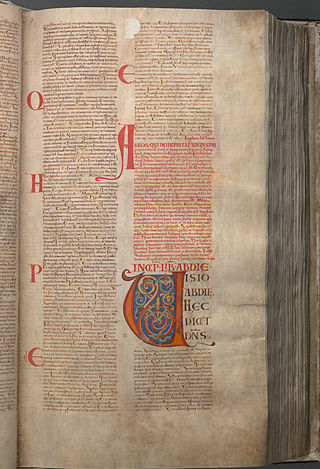
Amos 8 is the eighth chapter of the Book of Amos in the Hebrew Bible or the Old Testament of the Christian Bible. This book contains the prophecies attributed to the prophet Amos; in particular, the seventh, eighth, and ninth chapters contain visions and their explanations. It is a part of the Book of the Twelve Minor Prophets.
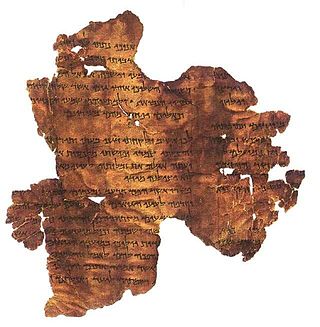
Hosea 2 is the second chapter of the Book of Hosea in the Hebrew Bible or the Old Testament of the Christian Bible. This book contains the prophecies attributed to the prophet Hosea son of Beeri and this chapter contains the application of the symbols in the first chapter. It is a part of the Book of the Twelve Minor Prophets.

Hosea 3 is the third chapter of the Book of Hosea in the Hebrew Bible or the Old Testament of the Christian Bible. This book contains the prophecies attributed to the prophet Hosea son of Beeri and this chapter is about the symbol of Israel's condition in their present dispersion, subsequent to their return from Babylon. It is a part of the Book of the Twelve Minor Prophets.

Hosea 4 is the fourth chapter of the Book of Hosea in the Hebrew Bible or the Old Testament of the Christian Bible. This book contains the prophecies attributed to the prophet Hosea son of Beeri. In this chapter he reproves the people and priests for their sins in the interregnum following Jeroboam's death; hence there is no mention of the king or his family; and in Hosea 4:2 bloodshed and other evils usual in a civil war are specified. It is a part of the Book of the Twelve Minor Prophets.

Hosea 5 is the fifth chapter of the Book of Hosea in the Hebrew Bible or the Old Testament of the Christian Bible. The book contains the prophecies attributed to the prophet Hosea son of Beeri and this chapter is about God's judgments against the priests, the people, and the princes of Israel, for their multiple sins, until they repent, a topic which continues to chapter 6. It is a part of the Book of the Twelve Minor Prophets.

Hosea 6 is the sixth chapter of the Book of Hosea in the Hebrew Bible or the Old Testament of the Christian Bible. This chapter contains the prophecies attributed to the prophet Hosea son of Beeri, about an exhortation to repentance and a complaint against Israel and Judah for persisting still in their wickedness. It is a part of the Book of the Twelve Minor Prophets.

Hosea 8 is the eighth chapter of the Book of Hosea in the Hebrew Bible or the Old Testament of the Christian Bible. This chapter contains the prophecies attributed to the prophet Hosea son of Beeri, about the impending destruction to Israel and Judah for their impiety and idolatry. It is a part of the Book of the Twelve Minor Prophets.

Hosea 9 is the ninth chapter of the Book of Hosea in the Hebrew Bible or the Old Testament of the Christian Bible. This chapter contains the prophecies attributed to the prophet Hosea son of Beeri, about the distress and captivity of Israel for their sins, especially their idolatry. It is a part of the Book of the Twelve Minor Prophets.

Hosea 10 is the tenth chapter of the Book of Hosea in the Hebrew Bible or the Old Testament of the Christian Bible. This chapter contains the prophecies attributed to the prophet Hosea son of Beeri, that was declared between Shalmaneser's first and second invasions of Israel, in which Israel is reproved and threatened for their impiety and idolatry, and exhorted to repentance. It is a part of the Book of the Twelve Minor Prophets.

Hosea 11 is the eleventh chapter of the Book of Hosea in the Hebrew Bible or the Old Testament of the Christian Bible. This chapter contains the prophecies attributed to the prophet Hosea son of Beeri, about God's former benefits, and Israel's ingratitude resulting in punishment, but God still promises restoration. It is a part of the Book of the Twelve Minor Prophets.

Hosea 12 is the twelfth chapter of the Book of Hosea in the Hebrew Bible or the Old Testament of the Christian Bible. This chapter contains the prophecies attributed to the prophet Hosea son of Beeri, and was delivered about the time of Israel's seeking the aid of the Egyptian king So, in violation of their covenant with Assyria. He exhorts them to follow their father Jacob's persevering prayerfulness, which brought God's favor upon him. As God is unchangeable, He will show the same favor to Jacob's posterity as He did to Jacob, if, like him, they seek God. It is a part of the Book of the Twelve Minor Prophets.

Hosea 13 is the thirteenth chapter of the Book of Hosea in the Hebrew Bible or the Old Testament of the Christian Bible. The book contains the prophecies attributed to the prophet Hosea son of Beeri. This chapter and the next one may belong to the troubled times that followed Pekah's murder by Hoshea. The subject is the idolatry of Ephraim, notwithstanding God's past benefits, destined to be his ruin. It is a part of the Book of the Twelve Minor Prophets.

Hosea 14 is the fourteenth chapter of the Book of Hosea in the Hebrew Bible or the Old Testament of the Christian Bible. This chapter contains the prophecies attributed to the prophet Hosea son of Beeri as an exhortation to repentance and a promise of God's blessing. It is a part of the Book of the Twelve Minor Prophets.
